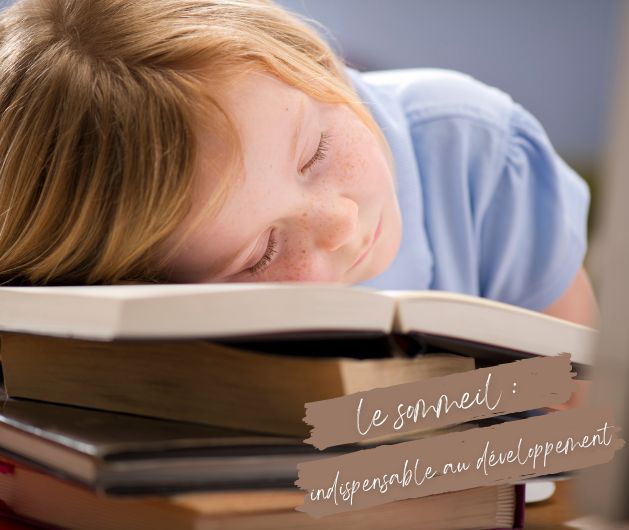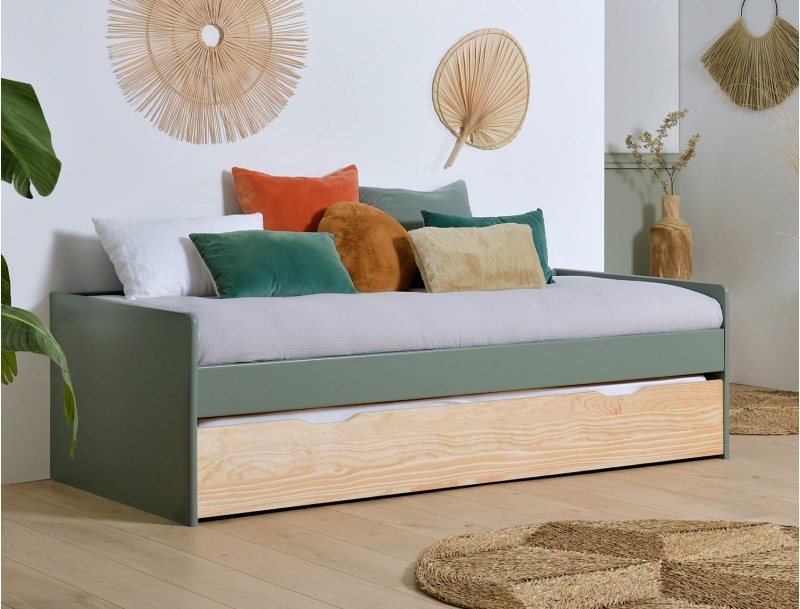The effects of sleep on academic success: the importance of a good bed

While your child's academic success is conditioned by many different factors, sleep is a major component of their well-being and therefore their success at school. Indeed, it is sleep that allows your child to develop, but also to record the information assimilated throughout the day. Ensuring that your child benefits from quality sleep every night is therefore also helping them to put all the chances on their side to flourish at school.
Sleep, an essential element for child development

From birth, sleep is of crucial importance for the well-being and development of the child. Getting enough sleep indeed offers your child the opportunity to:
- Reinforce learning
- Use logical reasoning
- Better manage emotions
- Be more focused during the day
- Be more creative
- Have the necessary energy throughout the day
- Build relationships with others
- Strengthen your immune system
- Develop physically
Therefore, it is important for parents to create an ideal setting that will allow the child to benefit from quality sleep. This involves an adapted environment, but also an adequate number of sleep hours. Most often, it is recommended:
- 11 to 14 hours of sleep for children aged 1 to 2
- 10 to 13 hours of sleep for children aged 3 to 5
- 9 to 12 hours of sleep for children aged 6 to 12
What are the consequences of lack of sleep in children?
Lack of sleep in children can be observed in several ways with signs such as:
- Difficulty waking up in the morning
- Regular yawning
- Lack of concentration
- Increased irritability
- More hyperactive behavior
- Poor results in class
These signs are therefore proof that your child is most likely lacking sleep and that their habits most certainly need to be reviewed. Therefore, it is important to make better choices so that they can find the rest they need.

Which bed to choose for a good night's sleep?
To promote quality nights, the choice of bed is obviously an important criterion to consider. Indeed, not all children's beds are equal, and it is important to opt for furniture adapted to your child's needs.
The example of the trundle bed
Let's take the trundle bed as an example, it's a bed that hides a second sleeping space under its base. The 90x190 cm trundle bed is perfect for a small room shared by two children or to have a second bed for inviting friends or cousins to sleep over. Beyond its practical format, the children's trundle bed must meet certain criteria. Indeed, we recommend focusing your search on trundle beds that are:
- Made of ecological panels with low formaldehyde content
- Preferably made of solid wood (PEFC or FSC certified)
- Painted or varnished with a water-based product without VOCs
By opting for an adult trundle bed or child's bed of this type, you are assured of limiting the presence of volatile organic compounds that can have an impact on air quality, and therefore the quality of your child's sleep. These so-called VOCs should therefore be banned from your child's room, whether you opt for a trundle bed with storage, a 90x200 trundle bed or any other type of bed or furniture for your child's room. For example, you can turn to a model like our LANDES daybed trundle for example, and find all the criteria previously mentioned in order to create a beautiful interior with a trundle bed.
What are the conditions for good sleep in children?
There are several ways to promote good sleep conditions for children.
The environment
It is important that your child has a dedicated space for sleep with a suitable bed and mattress. The room should be neither too bright, nor too noisy, nor too warm for them to find sleep. They must also feel confident and secure in it to be able to fall asleep peacefully.
Routine
Setting up a bedtime routine adapted to your child's age is highly recommended. This could be a story read before bedtime, for example. The important thing is to create a calm and relaxed environment, conducive to sleep.
Schedules
Schedules are very important for the child's well-being. The key here lies in regularity. Try to maintain the same organization throughout the week, but also on weekends so that the child maintains the same rhythm. This advice applies particularly to children who experience sleep problems.
Diet
Diet can also play a major role in preserving your child's sleep. We prefer to avoid stimulants in the evening of course, and opt for a healthy and balanced meal. Moreover, it is recommended to wait one or two hours after the meal before going to bed, as digestion can disrupt sleep.













 What Age for Bunk Bed: Standards and Safety
What Age for Bunk Bed: Standards and Safety
 When to put baby in their room: age and transition
When to put baby in their room: age and transition
 Best Choice for Baby: Bed Attached to Parents or Next to Them?
Best Choice for Baby: Bed Attached to Parents or Next to Them?
 The convertible bed: furniture that grows with your child
The convertible bed: furniture that grows with your child
 The bunk bed with storage and desk: discover its advantages!
The bunk bed with storage and desk: discover its advantages!
